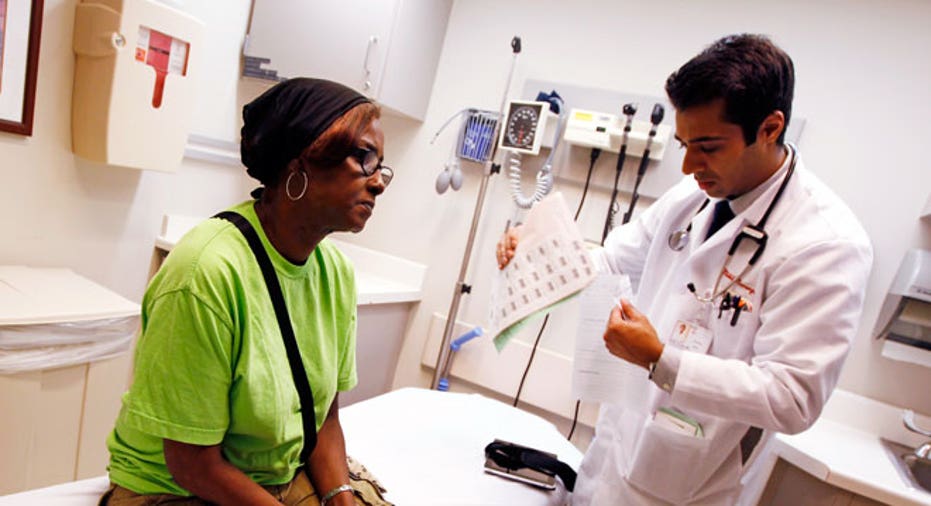More Technology Puts Doctors in Ethical Bind

Today’s doctors are wrestling with many ethical dilemmas when delivering patient care, according to a new survey.
A recent Medscape survey reveals how more than 24,000 U.S. physicians would react when faced with ethical considerations that potentially challenge putting the patient first. The results show doctors are divided:
- 27% say they would withdraw from an insurance network if the insurer did not pay well, even if long-time patients would be forced to stop seeing them; 41% say no; 33% say it depends
- 23% say it is acceptable to perform “unnecessary” procedures because of malpractice concerns yes; 55% say no; 22% say it depends
- 12% say it is acceptable to overstate or falsify a patient’s condition when submitting claims or seeking prior authorization; 75% say no; 13% it depends
- 35% say they would give life-sustaining therapy even if they believe it to be futile; 24% say no; 41% say it depends
Cost-containment pressures, a push for a more equitable partnership between doctors and patients and research and technological advances to improve care all have good intentions—but often put doctors in an ethical pressure cooker, experts say.
Doctors are wrestling with issues that would probably not have come up 25 years ago except in inside-the-club conversations, claims Dr. Arthur Caplan, head of the division of bioethics at New York University Langone Medical Center.
Today the focus is on quality and outcomes and consumers have higher expectations, he says.
“In the past, people assumed if a doctor came out of medical school at NYU, Penn, Stanford or Minnesota they were good practitioners, adds Caplan. “Today, they say ‘if I pay all this money, how can I be assured the doctor is getting enough sleep the night before my surgery?’”
Patients are more involved these days, says Medscape’s Leslie Kane, they ask more questions and suggest different paths of treatment. They are also more involved in end-of-life issues for loved ones.
“A doctor is not going to watch patient die just because an insurer might disagree with life-supporting methods,” says Kane. “But bottom line: It’s pressure and it goes to the hospital ethics committee.”
Bedside Chatter Costs
In the past, the U.S. health care industry has been indifferent to rising costs, but that discussion shouldn’t be taken right to bedside, says Caplan. “As a patient, when you’re sick, you pay attention to what you need. If a patient really needs the more expensive test and the medical code needs to be entered differently, it’s the right thing to do. It’s not about malpractice.”
Still, “this sometimes puts doctors in the terrible position to lie, dissemble or stretch the truth to get the necessary resources at bedside.”
Experts agree business is creeping into health care far too much, but doctors are still striving to put patients first. For example, when a physician opts-out of insurance networks that reimburse poorly, they typically make accommodations creating fee arrangements for their long-time patients, Kane says.
Even so, a patient’s movement from doctor to doctor often because of the patient’s insurance considerations presents problems. Dr. Michael Smith, WebMD’s chief medical officer, points out that this can make it hard to establish working doctor-patient relationship.
A doctor who knows his or her patients well can more easily determine the best plan of care. A strong relationship may also make a patient more receptive to challenge care plans. “A good bit of that is lost if a patient finds herself going from physician-to-physician,” says Smith.
Looming Litigation
Physicians clearly want to avoid being sued, not to mention malpractice issues are a huge expense to the overall health-care system. Plus, they’re time-consuming and take away from a doctor’s mission to practice medicine. A prolonged lawsuit can hurt a physician’s career even when he or she is exonerated, claims Smith.
Still, those TV commercials from lawyers looking to sue docs pose a threat, says Kane. On top of that, physicians know they can be fooled by symptoms; many have observed benign-like symptoms that were later found to be serious. The decision to practice defensive medicine is as much moral and medical as it is cost, Kane says.
Defensive medicine can run counter to the practice of evidence-based medicine which the industry recommends today. Evidence-based medicine came to the fore in the 90s primarily to establish the best medical approach for the patient, according to Smith. Now, it’s also tied to cost.
Evidence-based medicine does not always account for a patient’s multiple, interacting conditions, claims Kane.
In fact, for medical reasons many large physician groups don’t agree with the publicized guidelines of the U.S. Preventive Services Task Force—think the public controversy over the yearly PSA screening for prostate cancer—which can also influence whether or not an insurance carrier pays for a service.
The task force suggests the exam is unnecessary on a yearly basis; but primary care doctors say it’s the only test for prostate cancer they have at their disposal and become uncomfortably caught in the middle, Smith says.
At NYU, for example, the curriculum still emphasizes care for the patient as the foremost physician responsibility, says Caplan, despite the fact some industry continuing education seminars challenge the notion of the good physician displaying zealous patient advocacy at a time when cost should come first.
“We still want doctors to think of the patient first and worry about the national health spend later.”



















